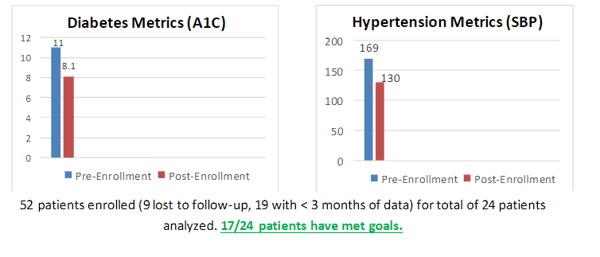In an effort to improve physician skills and experience with Telehealth, Northwest AHEC and Wake Forest School of Medicine Internal Residency were awarded a grant to produce online learning for physicians and distribute medical supplies to patients. Funding allowed telehealth technology capabilities to be fully integrated in two clinics.
In January 2021, the Wake Forest University School of Medicine Internal Medicine Residency (two safety-net clinics) were awarded a $10,000.00 grant from the State Employee’s Credit Union facilitated by the Northwest AHEC.
The proposal, titled “Know Your Numbers: Incorporating Telehealth and Patient Home Monitoring for Chronic Disease Management Within Two Resident Ambulatory Clinics” aimed to improve resident physician skills and experience with telehealth / virtual visits, while also engaging patients in self-monitoring of their chronic health condition. The project was led by Nancy Denizard-Thompson, MD, Associate Professor, and Jessica Valente, MD, MPH, Associate Program Director, and facilitated by Leslie McDowell, DNP, of Northwest AHEC Practice Support Team.
Features of the project:
- NW AHEC created two interactive online learning activities for residents: ‘Adapting the Four Habits Model for Virtual Visit Success’, Module 1 and ‘Working with Interpreters in Telehealth’ (publication pending).
- Blood pressure cuffs, scales, glucometers and pill minders were dispensed to patients meeting selection criteria (A1C >9% or Systolic BP >150).
Results:
- 72.5% of residents reported feeling comfortable using telehealth and 94% believed telehealth is an important skill.
- Funding allowed telehealth technology capabilities to be fully integrated in both clinics.
- 71% of patients (for whom 3 months of data is available) have met goals
- Survey responses from patients: “Having supplies at home has been a lifesaver” “Supplies have been helpful with monitoring diabetes----this is a good idea” “I prefer a phone visit over in-person”
- Telehealth training embedded into orientation process for interns and interpreter training module now part of the health equity curriculum for medical students







